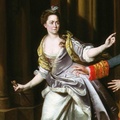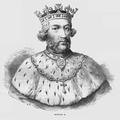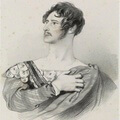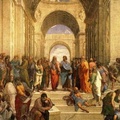Essay Introduction
Politics appear in media, history, and literature. The world revolves around politics, and literature can be political in many ways. In Macbeth, William Shakespeare suggests that literature can portray politics by representing power, violence, ambition, and social conventions. Shakespeare’s Macbeth has a consistent theme of portraying power.
Research Paper on Macbeth
Whilst the play itself is fantastic to analyze and contains interesting topics, the production of the play is just as interesting. People within theatrical circles often believe that the play is cursed – to utter the name Macbeth during production is said to bring bad luck. This is mainly due to the witchcraft depicted in the story.
Argumentative Essay Examples on Macbeth
In this tragedy, power is viewed as a form of corruption. Macbeth kills King Duncan, then corrupts himself by being killed. This show that Macbeth will do whatever it takes to be crowned King, even if it’s unethical; “LORD: ‘The son of Duncan (From whom this tyrant holds the due of birth)’” (3.6.28-29). Macbeth has just been crowned King and is already being called a tyrant because of the unethical way he managed to be crowned king. Macbeth always had an idea of how he was going to become King, but was tempted further by the witches who revealed the power that will soon be his; “WITCHES: ‘All hail Macbeth, thou shalt be king hereafter! […] Thou shalt get kings, though thou be none. So all hail Macbeth and Banquo!”(1.3.53;70-71). The witches’ message only results in Macbeth being power-hungry.
Macbeth’s jealousy of Duncan only strengthened his thirst for power; “MACBETH: Besides, this Duncan Hath Borne his faculties so meek, hath been So clear in his great office, that his virtues Will plead like angels, trumpet-tongued, against The deep damnation of his taking off;” (1.7.16-20). Macbeth condescendingly admits that Duncan has done a good job but then proceeds to call him meek. Meek is not a word to be used when talking about the most powerful man in the Kingdom. Shakespeare’s Macbeth is a well-recognized example of how power can get to one’s head and justify any action to achieve control. Macbeth’s case of power is a lot like politics today, but it’s who is in the office, not the Kingdom. Not just the president but anyone working at the white house has the most power in the country. The difference is that no one is killing others to be named the president.
Thesis Statement for Macbeth
Both parties work hard on their campaign and hope that they outvote the other. The tragedy of Macbeth also demonstrates the concept of violence. While violence is often associated with tragedies, this play has a different way of portraying it. The captain implies that violence can be glorious; “MALCOLM: Say to the King the knowledge of the broil As thou didst leave it. CAPTAIN: Doubtful it stood, As two spent swimmers that do cling together And choke their art.” (1.2.7-11). The way the captain describes violence makes it seem like violence can be a beautiful thing and should be seen as such. The captain also describes the battlefield in a threatening way; “CAPTAIN: So they redoubled strokes upon the foe. Except they meant to bathe in reeking wounds Or memorize another Golgotha, I cannot tell” (1.2.42-45) Golgotha is the place where Christ was said to have been crucified. The captain knows that something abominable is going to happen on the battlefield, hence the comparison to Golgotha. In this sense, the captain is describing the violence as a threatening thing. Lady Macbeth has a different way of portraying violence; “LADY MACBETH: […] Come, you spirits That tend on mortal thoughts, unsex me here, And fill me from the crown to the top full Of direst cruelty. Make thick my blood. Stop up the access and passage to remorse, That no compunctious visitings of nature Shake my fell purpose, nor keep the peace between The effect and it. (1.5.47-54). Lady Macbeth asks the spirits to make her cruel but wants her blood to stop. While all the other men in this play are bleeding, she wants her to stop. Lady Macbeth wants to be cruel and violent but doesn’t want to get hurt. Violence is portrayed differently by different characters in this play. As one of the primary concepts of the play, violence remains something that no one takes any initiative to stop.
The biggest social convention in Macbeth is the way gender is portrayed. Specifically, the relationship between Lady Macbeth and Macbeth himself. Lady Macbeth shows many male-like qualities throughout the tragedy, while Macbeth shows feminine qualities. Lady Macbeth has thoughts of her husband that he probably did not want to hear; “LADY MACBETH: Was the hope drunk Wherein you dressed? Hath it slept since? And it wakes now, to look so green and pale At what it did so freely? From this time Such I account thy love. Art thou afeared To be the same in thine own act and valor as thou art in desire? Wouldst thou have that Which thou esteem the ornament of life, and live a coward in thine own esteem, Letting ‘I dare not’ wait upon ‘I would,’ Like the poor cat i’ th’ adage? MACBETH: Prithee, peace: I dare do all that may become a man.” (1.7.39-51). While Lady Macbeth is calling her husband green and pale, she is referring to the green sickness. That her husband is anemic.
Green sickness was used to describe anemic young virgin girls. In response to the surprising response, Macbeth clarifies that he is very much a man. In Act 2, Macduff is talking to Lady Macbeth and explains his thoughts about females and violence; “MACDUFF: O gentle lady, ‘Tis not for you to hear what I can speak. The repetition in a woman’s ear Would murder as it fell.” (2.3.96-99). Macduff is so tied to the stereotype of female gentleness that he can’t fathom the thought of Lady Macbeth hearing about murder, let alone planning it. In Act 1, Macbeth tells his wife that she is manly enough to only give birth to male children; “MACBETH: Bring forth men-children only, For thy undaunted mettle should compose Nothing but males.” (1.7.83-85). Macbeth tells his wife that she’s only “manly” enough to birth male children is an interesting take on early ideas of gender.
The Impact of Ambition and Power in Macbeth’s Ideas
This play tends to display masculinity and femininity as more behavior than any sex characteristics. In Act 1, Banquo speaks to the witches; “BANQUO: You should be women, And yet your beards forbid me to interpret That you are so.” (1.3.47-49). Banquo is suggesting that just because they look like women, they should be and that the presence of a beard automatically makes someone a man. In Act 1, Lady Macbeth gives her speech about wanting to become the person her husband never could be; “LADY MACBETH: The effect and it. Come to my woman’s breasts, And take my milk for gall, you murdering ministers, Wherever in your sightless substances You want on nature’s mischief. Come, thick night, and pall thee in the dunnest smoke of hell, That my keen knife see not the wound it makes, Nor heaven peep through the blanket of the dark, to cry ‘Hold, hold!’” (1.5.47-61). Lady Macbeth is calling to the spirits, saying that she wants to have her feminine qualities taken away from her so she can be a better king than her husband. Gender is a recurring theme in this play. It portrays stereotypes that still stand today of what it takes to be a man and what it means to be a woman. This play can also be seen as contradictory to basic gender stereotypes because of the way the characters act.
Ideas of Macbeth’s Psychological Journey: Guilt and Paranoia
Ambition may not be seen as a political concept to some, but Shakespeare’s Macbeth effectively argues that ambition and politics are intertwined. Macbeth, Banquo, and Macduff show very ambitious qualities throughout the play. For instance, in Act 5, Macduff shows ambition by avenging his family and his king, but doesn’t seek power for himself; “MACDUFF: Enter thou, Macbeth, Or else my sword with an unbattered edge, I sheathe again undeeded. There thou shouldst be; By this great clatter, one of greatest notes Seems bruited. Let me find him, Fortune, And more I beg not.” (5.6.19-24). Macduff doesn’t want to control a fortune; he’s ready to be manipulated by fortune. Macbeth shows a different side of ambition, one filled with a violent one. In Act 1, Macbeth shows his ambition by speaking about murder; “MACBETH: My thought, whose murder yet is but fantastical, Shakes so my single state of man that function is smothered in surmise, and nothing is but what is not. (1.3.152-155). Macbeth brings up the topic of murder unprovoked. The fact that Macbeth’s first thought is killing suggests that the witches have just awoken a murderous ambition. Banquo’s form of ambition isn’t necessarily for the good or the bad, but he wants a prophecy; “BANQUO: […] My noble partner, You greet with present grace and great prediction Of noble having and of royal hope, That he seems rapt withal. To me, you speak not. If you can look into the seeds of time, And say which grain will grow and which will not, Speak, then, to me, who neither beg nor fear Your favors your hate.” (1.3.57-64). Banquo claims he doesn’t care about having a prophecy one way or another but is contradicted when he tries to look towards the future. Ambition can be turned into a political construct because of how it makes people act.
Conclusion
It can say a lot about how people act when there is a drive for power, prophecies, and violence. Ambition is a significant concept of Macbeth because it reveals truths about the characters that may not have been able to be seen without having the quality of being ambitious. Shakespeare’s Macbeth suggests that literature can portray politics by representing power, violence, ambition, and social conventions. This tragedy is just one of the many examples of how moments in history can be represented through literature. Going forward, these qualities can be shown differently in different types of literature and films. Power can be portrayed as good instead of making people crazy, gender stereotypes won’t be a thing, ambition will be for good, not bad, and violence will slowly stop happening.




